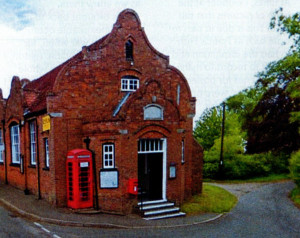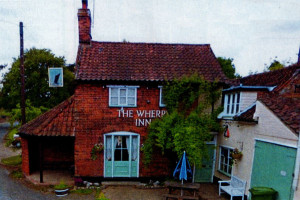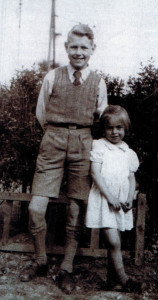
A RECENT mention in Best of British of the lovely little village of Geldeston, between Beccles and Bungay in East Anglia, has prompted me to write recounting my time spent there during WW1I.
My father, who was in what was classified as a reserved occupation, had been sent to East Anglia to various ‘dumps’ as they were called, supplying aviation fuel to the numerous American airfields in the area. My father worked for the Petroleum Board, an amalgamation of all the branded petroleum companies.
As there seemed to be no foreseeable end to the war, he arranged to move us from Rotherham down to Geldeston to be together. Initially we were in lodgings with a lovely old gentleman and his grown up daughter. After getting settled, we then rented a cottage called Dangelts.
Coming from the Sheffield area, country life and all its adventures was heaven -dyke jumping, sweet chestnuts to be had, rosehips picked from the hedgerows for school collections to be sent to the syrup factories, and fishing in the river Waveney which ran close to the village school. We could even take our fishing tackle to school, so you can guess where we headed every afternoon when lessons were finished.
Opposite the school was the village pub, The Wherry Inn, a popular venue for the ‘Yanks’ who were there most nights. When the war ended they had the biggest celebration, which matched anything our current bonfire nights could create, but the USAAF fireworks were flares obviously meant for warfare signalling. The following morning the pub forecourt was littered with cartridge cases which we kids had

great fun kicking about. Later we found out that many were ‘live’.
My great memory of Geldeston was being allowed to spend my out of school hours on the farm next door. In essence a dairy farm, Dunburgh Farm had several Suffolk Punch horses to do the bulk of the work, although they had one elderly tractor. The farmer was Mr Anguish, together with his wife and son Maurice, who was aged about 20, and a dairyman/labourer. Even though Mr Anguish was a hard task master, I learned a lot about farming from him.
In 1980 I took my wife on a trip down memory lane which brought us eventually to Geldeston. We walked down through the village and past the farm and at a junction we turned to go back and paused to let a tractor past. The farmer and I looked at each other but only nodded. Retracing our steps, as we approached the farm entrance, the farmer was walking out, he looked at me and said, “I know you”. I responded, recognising him as Maurice Anguish, the farmer’s son. I was a ten-year-old in short trousers when he had last seen me 34 years ago. What a memory. He insisted we meet his elderly parents; my old mentor, Mr Anguish. We had a delightful afternoon reminiscing about the war years.
Grant Matthews,
Owlthorpe, Sheffield.









